While real estate certifications and designations aren’t required, they help agents and brokers broaden their expertise and target niche markets. Many well-known real estate certifications automatically build an agent’s credibility with potential clients. We’ve reviewed the most impactful real estate designations and certifications to determine how they can help you and your business grow.
Best Real Estate Certifications & Designations at a Glance
Certification/Designation | Best For | Cost | Learn More |
|---|---|---|---|
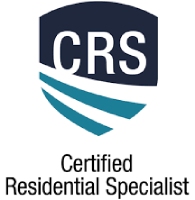 | Residential Real Estate Council (RRC) members specializing in residential property sales | $99 application fee, plus annual dues of $195 | |
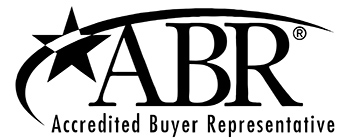 | Agents who want to focus on exclusively representing homebuyers | $295-$590, plus annual dues of $110 | |
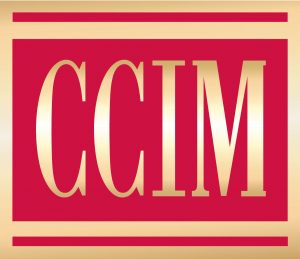 Certified Commercial Investment Member | Realtors with clients targeting commercial real estate investments | $370-$1,735, plus annual dues of $695 | |
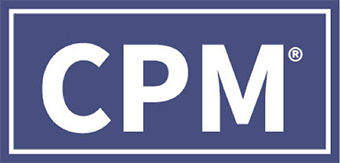 Certified Property Manager | Experienced property managers who manage any asset class and want to learn how to boost the value of their properties | $7,500-$8,500 | |
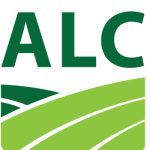 Accredited Land Consultant | Brokers or agents that facilitate investments in raw or developable land | $445-$545, plus $100 exam fee and annual dues of $445 | |
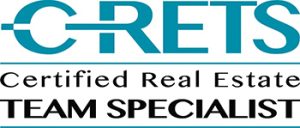 | Team leaders and agents looking to start a team to sharpen their management skills | $145 for courses, plus $159 application fee | |
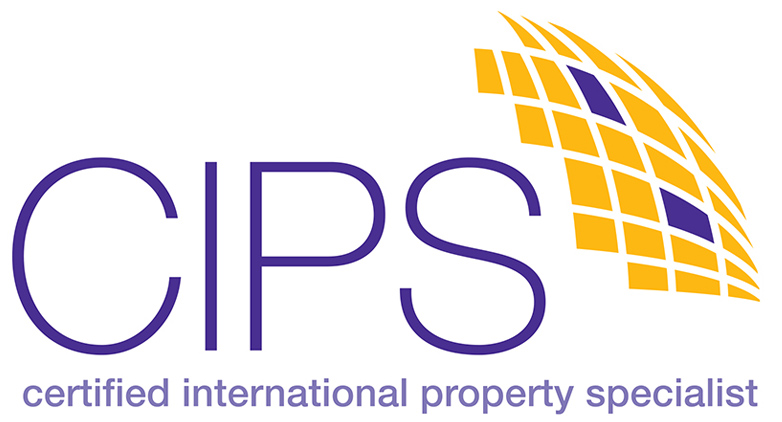 | Realtors who work with Americans wishing to invest in property abroad and foreigners looking to invest in the United States property | $147-$750, plus $75 application fee and $220 annual renewal fee | |
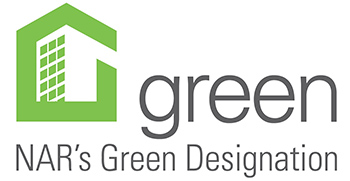 | Real estate agents keen on learning about energy efficiency and sustainability issues | $236-$478, plus $98.50 annual renewal fee | |
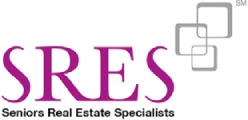 | Agents and brokers who specialize in helping active adults and senior clients buy and sell properties | $295, plus $99 annual renewal fee | |
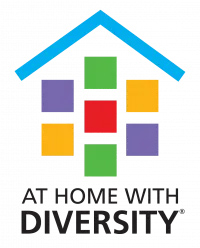 | Real estate professionals who want to be sensitive and prepared to work in multicultural real estate markets | $99, plus $75 application fee | |
 | Agents wanting additional training in many areas of real estate transactions to better support clients | $99-$500 | |
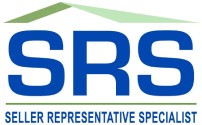 | Agents wanting to specialize in working with homeowners and real estate sellers to most effectively sell properties | $145-$295, plus $99 annual renewal fee | |
Professionals wanting to leverage advanced digital marketing techniques to generate leads and market properties | $219-$438, plus $149 application fee | ||
 | Real estate sales professionals who want to communicate effectively with clients about mortgage and financing options | $115-$230, plus $89 certification fee | |
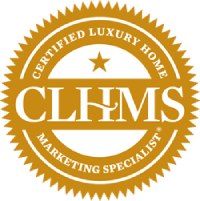 | Real estate professionals who want to help high-end clients buy and sell luxury properties | $545 | |
 | Real estate agents and brokers who want to work directly with investors to buy and sell properties | $126-$187 |
1. Certified Residential Specialist (CRS)
 | |
What CRS Is & Why It’s Beneficial The Certified Residential Specialist (CRS) designation is offered by the Residential Real Estate Council (RRC). This realtor certification is well-known as the highest credential awarded to real estate sales professionals, giving you maximum credibility. It gives you the most in-depth education about residential real estate sales, which benefits both buyer and seller clients. Having the CRS real estate designation and being a member of the RRC also includes a wide variety of additional benefits and resources. For example, you earn access to list your properties in the council's online and print dictionaries, become part of the referral network, and receive marketing tools and complimentary educational webinars. | |
How to Become a CRS To become a CRS, you must join the RRC. There are two paths to earning the CRS real estate certificate: the 60/30/30 Program and the Pro Program. In the 60/30/30 Program, you must have either 60 transactions in the last five years or $30 million in sales volume, as well as 30 credits of RRC education. On the other hand, Pro Program applicants must complete 16 hours of RRC education, have worked for 10 or more years as a licensed agent, and have either 150 transactions total or an average of $1 million per year in sales. | |
Cost for CRS Designation
| Where to Get CRS Designation |
2. Accredited Buyer’s Representative (ABR)
 | |
What ABR Is & Why It’s Beneficial The Accredited Buyer's Representative (ABR) designation is ideal for real estate agents who frequently or primarily work with buyers. This is a recognizable designation, so it’s a great way to boost your real estate credentials with buyers. It helps to establish you as a real estate negotiation expert, and assures potential buyers that you will provide them with high-quality support and expertise. In addition to the education and well-respected realtor designation, ABR also offers valuable real estate education and provides access to marketing tools and resources that keep you knowledgeable on homebuyers' issues and trends. | |
How to Become an ABR ABR is one of the National Association of Realtors (NAR) designations, so you must be a member for access. You must also be a member of the Real Estate Buyer's Agent Council (REBAC) to be qualified for your ABR. Then you must finish the two-day ABR course and score at least 80% on the test. Next, enroll in an ABR elective course and get a minimum of 80% on the final exam. Finally, you must complete five transactions in which you are the buyer's representative (no dual agency permitted). | |
Cost for ABR Designation
| Where to Get ABR Designation |
3. Certified Commercial Investment Member (CCIM)
 | |
What a CCIM Is & Why It’s Beneficial The Certified Commercial Investment Member (CCIM) designation is ideal for real estate agents who want to focus on commercial real estate. It is the most recognizable commercial real estate designation and guarantees that agents with the designation are knowledgeable in both theory and practice of commercial transactions. CCIMs include a variety of professionals, including brokers, leasing specialists, investment counselors, asset managers, appraisers, property managers, developers, institutional investors, and commercial lenders. It’s also one of the best commercial real estate certifications to earn because it provides access to a network of 13,000 members across the U.S. and around the globe. It offers benefits, such as real estate tools, tuition discounts, CCIM.net email with Google Workspace, deal share, predesigned Excel templates, CCIM business forms, and Excel CCIM financial calculator. | |
How to Become a CCIM To qualify for your CCIM, you'll need to complete the education components, including the two-day Course Concepts Review (CCR) and six-hour Comprehensive Exam, and pass the final exam at least 70% (coursework includes three different classes). You should also have worked in the commercial real estate industry for at least two years. Then, provide a portfolio of qualifying experience (except for Fast Track students). | |
Cost for CCIM Designation
| Where to Get CCIM Designation |
4. Certified Property Manager (CPM)
 | |
What a CPM Is & Why It’s Beneficial The Certified Property Manager (CPM) is a great certification for real estate agents, brokers, building owners, and investors to learn how to manage properties ethically and effectively. Being a CPM also assures investors that you know your way around managing rental properties and know how to maximize the value of their properties. Moreover, if you’re looking for real estate certifications that pay well, CPM is a great choice because over half of CPMs hold senior-level management positions. CPM will also help you expand your network by generating business referrals, meeting future employees or employers, and consulting with other experts. | |
How to Become a CPM To qualify, applicants must complete eight CPM certification courses and pass the CPM Capstone final assessment. Then, candidates must complete 36 months of qualifying real estate management experience, including appropriate portfolio requirements. Attend at least two events with your local IREM chapter and become an institute affiliate member of NAR. | |
Cost for CPM Certification
| Where to Get CPM Certification: |
5. Accredited Land Consultant (ALC)
 | |
What ALC Is & Why It’s Beneficial Another real estate designation available to NAR members is the Accredited Land Consultant (ALC). ALCs receive in-depth, ongoing education about every type of land transaction, from farms and ranches to subdivisions. Having the ALC real estate certificate shows leads who are interested in selling or buying land that you are the go-to expert. In addition, ALC also provides agents access to a network of land experts through the Realtors Land Institute (RLI). One membership survey found that the average income of ALCs is $373,925, which is over $100,000 more than the average income of land professionals who don’t hold this designation. | |
How to Become an ALC To become an ALC, candidates must have a current real estate license and at least two years of experience in land sales. Alternatively, candidates can show that they have at least three years of relevant real estate experience. Real estate professionals must also complete 104-course hours through the Realtors Land Institute's LAND University (LANDU) program. This contains 48 elective course hours and 56 hours of required courses. After completing the relevant curriculum, applicants must pass a final exam with a 70% or above. | |
Cost for ALC Certification
| Where to Get ALC Certification |
6. Certified Real Estate Team Specialist (C-RETS)
 | |
What C-RETS Is & Why It’s Beneficial The Certified Real Estate Team Specialist (C-RETS) is best for team leaders and professionals looking to form a real estate team. The NAR recognizes the C-RETS certification as the first and sole team certification. It is ideal for those agents wishing to improve their team development, individual leadership skills, and financial performance. You may also fast-track your Certified Real Estate Brokerage (CRB) designation with the C-RETS certification. The C-RETS courses provide the tools, methods, and knowledge needed by today's real estate professionals who are thinking about or are already working in a team setting. It hones agents' leadership skills, educating them on the importance of constant and effective communication within the team. This course encourages team growth for better teamwork and service in building and sustaining profitable businesses. | |
How to Become a C-RETS To become a C-RETS, you must complete at least two C-RETS courses. You're free to choose courses depending on your learning needs or interests. You also need to maintain an active membership with NAR. As for the exam, C-RETS does not require agents with any exam qualification to be certified. | |
Cost for C-RETS Certification
| Where to Get C-RETS Certification |
7. Certified International Property Specialist (CIPS)
 | |
What CIPS Is & Why It’s Beneficial The Certified International Property Specialist (CIPS) certification is for realtors who wish to develop or grow their international real estate business. It provides sales agents with the knowledge, tools, and network they need to cater to these global audiences to negotiate and conclude the final sales contract. Like a few other NAR real estate designations, being a CIPS grants you access to an online directory and network. It also provides marketing tools like customizable print postcards, web banner ads, press releases, and member-only online communities. These allow sales realtors to grow from the inside out, so that they can grab the attention of their customers and eventually convert them into potential buyers. | |
How to Become a CIPS To qualify for your CIPS, you'll need to complete “Global Real Estate: Local Markets” and “Global Real Estate: Transaction Tools” core courses and take and complete three elective courses. Upon completing the courses, you must fill out and submit the U.S. CIPS application. Accumulate 100 points on the application form to indicate that you have the experience necessary to hold this certification. You must also be an active member of NAR. | |
Cost for CIPS Certification
| Where to Get CIPS Certification |
8. NAR’s Green Designation
 | |
What NAR’s Green Designation Is & Why It’s Beneficial The NAR’s Green Designation is intended for real estate agents who want to learn more about energy efficiency and sustainability issues. This designation educates agents about green homes that are sustainably sourced, environmentally friendly, or made with recycled building materials. It will also show agents how to market these homes differently than traditional homes and become an expert source of information about green homes for interested clients. GREEN provides agents access to members-only marketing tools, knowledge about marketing homes with green features, and tips on how to communicate with clients interested in different facets of living green. It also provides access to online Green directory listings, unique industry webinars, prewritten green content for your social media platforms, and promotional tools. | |
How to Become a NAR Green REsource Council Member To earn the GREEN designation, you must become a member of NAR and an active member of NAR's Green REsource Council. Then you must complete the required coursework, which is offered as an online class or a live lecture. When you complete the required courses, you must pass the final exam with at least an 80% or above. | |
Cost for NAR’s Green Designation
| Where to Get NAR’s Green Designation |
9. Seniors Real Estate Specialist (SRES)
 | |
What SRES Is & Why It’s Beneficial The Senior Real Estate Specialist (SRES) designation is another great NAR real estate designation to help you stand out in a niche real estate market. Agents who earn their SRES certification are better equipped to approach older clients with alternatives and knowledge when making life-changing decisions. You can be an important part of this transition for seniors, whether they are downsizing, living on a fixed income, or wishing to live closer to family. SRES designation provides realtors access to the online SRES member database and the members-only section of the SRES website, consumer marketing materials, quarterly newsletter, marketing letters, and scripts and concepts for contacting clients aged 50-plus. | |
How to Become an SRES To earn the SRES designation, you must complete the two-day course and pass the final exam with a score of 80% or higher. In addition, you must be a NAR member in good standing and a member of the SRES Council. | |
Cost for SRES Designation
| Where to Get SRES Designation |
10. At Home With Diversity (AHWD)
 | |
What AHWD Is & Why It’s Beneficial NAR offers the At Home With Diversity (AHWD) certification, which teaches real estate agents to be sensitive to diversity and to set rules for operating in multicultural markets. It teaches you how to gain the confidence of potential sellers and buyers from varied cultural, ethnic, and other backgrounds. Also, you’ll learn how to create a business strategy that mitigates risk while effectively serving all clients equally. AHWD certification also provides knowledge of the subtleties of U.S. fair housing laws, business etiquette for specific cultures, an edge in expanding your business to include international clientele, credit toward the ABR and CIPS designations, and as a task in the C2EX program. Some states also give this course continuing education (CE) and Global Reporting Initiative (GRI) credit. | |
How to Become AHWD To receive this real estate designation, you must maintain an active NAR membership and complete the AHWD course online or in a classroom. If you're taking the course online, you'll need to score good marks on the final exam. | |
Cost for AHWD Certification
| Where to Get AHWD Certification |
11. Graduate, REALTOR® Institute (GRI)
 | |
What GRI Is & Why It’s Beneficial The Graduate, REALTOR® Institute (GRI) designation from the NAR, is ideal for new agents or as your first realtor certification. It includes additional training in many areas of buying and selling properties, like the real estate market, business strategies, and professionalism. Compared to other real estate designations, it’s unique because it doesn’t require an annual renewal. Being a GRI Realtor shows potential clients that you have additional education and expertise, which is beneficial particularly for new agents. Plus, the average graduate has a median income 74% higher than other realtors. | |
How to Become a GRI Realtor You must be a member of the NAR to start earning your GRI. The additional education requirements for this designation vary by state, so contact your state chapter of the NAR to get more specific details. | |
Cost for GRI Designation
| Where to Get GRI Designation |
12. Seller Representative Specialist (SRS)
 | |
What SRS Is & Why It’s Beneficial The Seller Representative Specialist (SRS) designation is offered by the Real Estate Business Institute (REBI). It’s designed to give listing agents more in-depth knowledge and strategies to sell properties. It includes specific education about how to generate listing clients, create a prelisting presentation, and support sellers throughout the process. As an SRS, you also receive a membership to a community of seller-client advocates, additional education, an SRS online directory, and a subscription to Real Estate Business Magazine. Having this designation will help you generate seller leads more easily because it shows homeowners that you have specific training and expertise to sell their house for the best value. | |
How to Become an SRS To earn the SRS designation, you must complete the two-day course, which can be taken online or in-person, and be a member of the NAR. Then, complete one approved elective from REBI, close three transactions for listing clients, and submit your designation application. | |
Cost for SRS Designation
| Where to Get SRS Designation |
13. e-PRO® certification
 | |
What e-PRO Is & Why It’s Beneficial The e-PRO certification is offered by the NAR, and is one of the best real estate certifications to get for any real estate niche or career path. It teaches agents how to leverage constantly changing technology to improve their business. Earning this certification will help you learn how to use advanced digital marketing techniques to generate leads and convert them into clients. Research from the NAR shows that 96% of homebuyers use online tools in their home search, which means that it is absolutely essential to use online tools to connect with clients, find properties, and market properties. Having the e-PRO certification builds your credibility in this area by showing leads that you have specialized training in online tools and marketing. In addition, e-PRO members receive access to personalized marketing materials, ongoing education on technology, and an online member directory. | |
How to Get an e-PRO Certification To get an e-PRO certification, you must be a member of the NAR and complete the e-PRO course online or in person. The course is 12 hours long and fills the elective requirement for the SRS designation. Then, simply submit an application and receive your e-PRO real estate certificate. | |
Cost for e-PRO Certification
| Where to Get e-PRO Certification |
14. Home Finance Resource (HFR) Certification
 | |
What HFR Is & Why It’s Beneficial The Home Finance Resource (HFR) certification is a new offering from the NAR. Real estate agents frequently get mortgage or financing questions from their clients, and this certification course equips you answer the most important questions about the loan origination process. This not only shows potential clients another area of your expertise but also helps you learn how to communicate most effectively with them. Agents with the HFR certification get specialized marketing materials and join a network of other agents. Plus, the HFR course counts toward the ABR designation, so you can earn multiple real estate designations at once. | |
How to Become an HFR The process of earning the HFR certification is relatively simple. You must be a current member of the NAR, then complete the six-hour HFR course either online or in person. Then you will submit an application and fee to earn your certificate and access the member benefits. | |
Cost for HFR Certification
| Where to Get HFR Certification
|
15. Certified Luxury Home Marketing Specialist (CLHMS)
 | |
What CLHMS Is & Why It’s Beneficial The CLHMS designation is offered by the Institute for Luxury Home Marketing from Colibri Real Estate. It is an ideal choice for anyone wanting to become a luxury real estate agent. The designation provides specialized education on high-end properties and builds credibility with owners of luxury properties. Completing the Luxury Home Marketing Training also makes you a member of The Institute, which provides many additional benefits. There are unique marketing solutions, listing opportunities in specialized publications, a library of online resources, and an online directory. | |
How to Become CLHMS To start earning the CLHMS, you must have completed three single-family transactions in the last 24 months, which are at or above the luxury threshold price for your market. You must also complete the Luxury Home Marketing Training online or in person, then submit your application. After you’ve earned the CLHMS designation, you can also apply for GUILD or GUILD Elite designations, which have additional requirements. | |
Cost for CLHMS Designation
| Where to Get CLHMS Designation |
16. Real Estate Investing (REI) Certification
 | |
What REI Certification Is & Why It’s Beneficial The Real Estate Investing (REI) certification program from the RRC is for agents and brokers who want to work most successfully with real estate investors. It includes education on topics like 1031 exchanges, real estate investment trusts, and property management. Investors often have specific requirements when working with agents, so having this designation will show that you have the expertise they need. This certification course also includes interview questions to cover with each potential investor client and tools to help them make smart financial decisions. Having this information can help you find loyal investor clients who may use you to buy and sell multiple properties, ultimately increasing your income. | |
How to Get an REI Certification To get the REI certification, you must be an RRC member in good standing. Then there are 14 required hours of education you must complete, which include a six-hour online course bundle and a live or virtual one-day course. Some of the RRC-required courses also count toward earning your CRS designation. | |
Cost for REI Certification
| Where to Get REI Certification |
Why Real Estate Certifications & Designations Are Important
Real estate certifications and designations help real estate professionals gain specialized education, expertise, and support in specific areas of their business. This not only helps you become successful in real estate, but also sets you apart from other agents in your area. Pursuing realtor certifications will position you as a highly renowned specialist in a specific real estate market. With the right designations, you’ll carve out a profitable niche and real estate brand.

Example Realtor email signature with designations (Source: Realsupportinc.com)
In fact, many certification and designation programs provide custom logos and branding materials to help you boost your credibility even more efficiently. You can use these in your marketing materials, like direct mail, social media profiles, and email signatures.

HubSpot email signature generator (Source: HubSpot)
Software programs like HubSpot provide comprehensive yet easy-to-use solutions to send marketing emails customized with your branding. HubSpot’s marketing and customer relationship management tools provide solutions for all of an agent’s needs, and there are even free tools like an email signature generator and a brand kit generator. Start using HubSpot today.
Bottom Line
Real estate designations and certifications enable agents, brokers, and other real estate professionals to specialize in a certain area of real estate and build credibility. The education and resources that accompany many real estate designations also help professionals become successful in real estate. Consider your expertise and target clientele, and select certifications that will expand your resume and grow your business.
Frequently Asked Questions (FAQs)
Real estate certifications are specialized credentials that demonstrate a person’s proficiency and expertise in particular areas of the real estate industry, like negotiating, working with buyers, or working with luxury properties. These certifications enhance a real estate professional’s credibility and marketability by showcasing and proving specialized expertise.
The cost of earning a real estate designation or certification can range significantly based on the specific designation, its requirements, and its source. Generally, costs range from a few hundred to a few thousand dollars.
Choosing the best real estate designation depends on the goals of your real estate business. For example, commercial real estate designations like CCIM will be best for aspiring commercial agents, while an ABR designation will be best for buyer’s representatives. However, a few designations, like e-PRO and GRI, are great for agents in all niches.